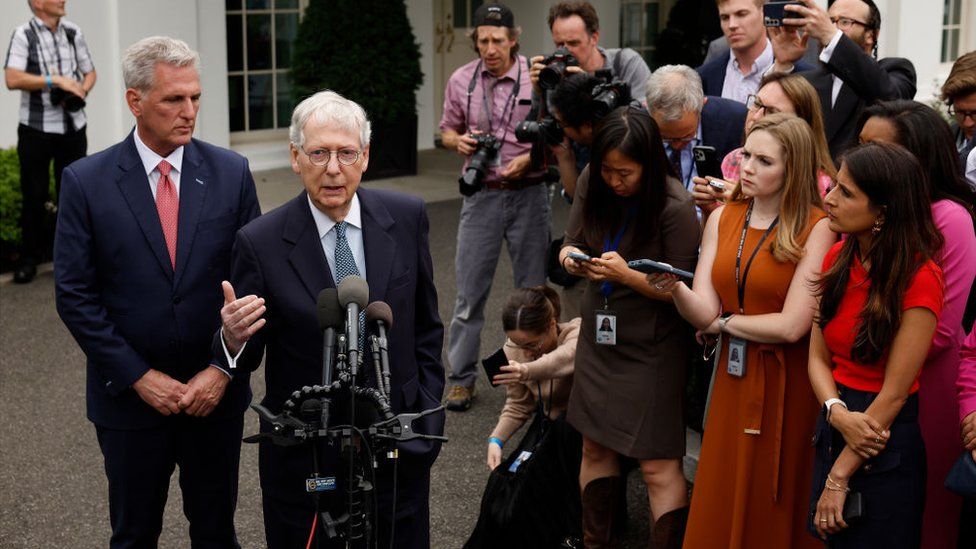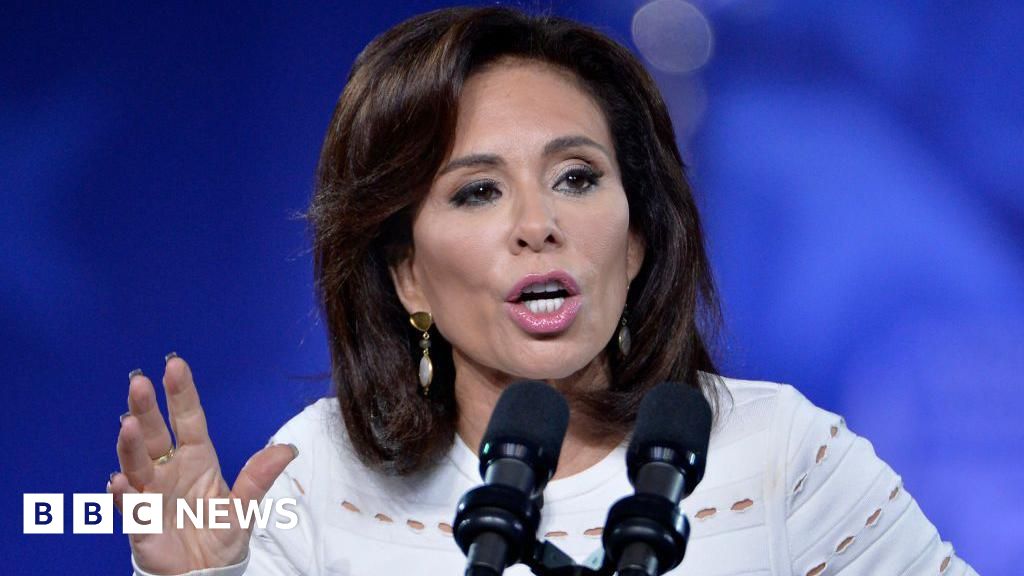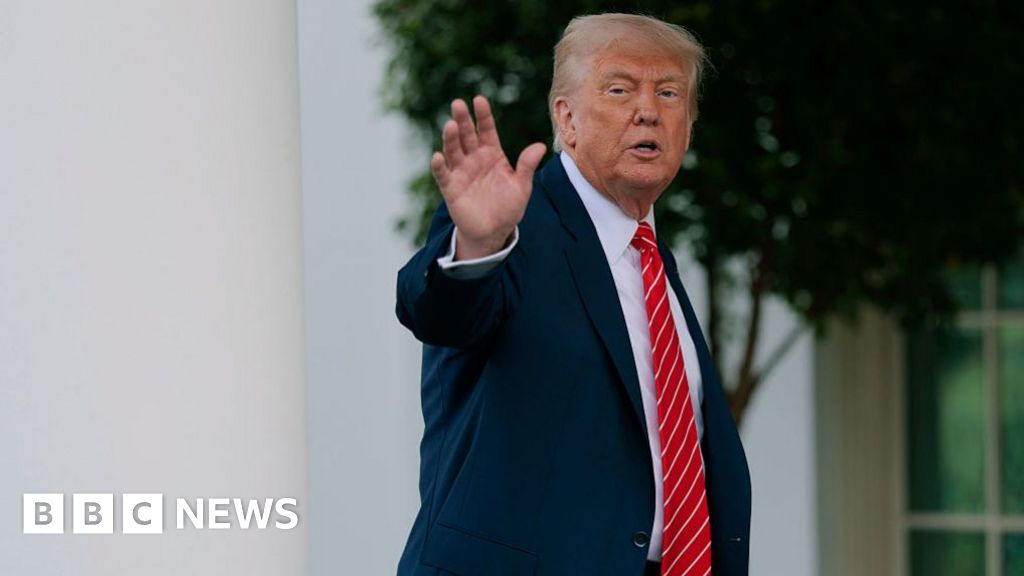ARTICLE AD BOX
 Image source, Getty Images
Image source, Getty Images
Republicans demands include an increase in work requirements and the reallocation of Covid funds
By Anthony Zurcher
North America correspondent
Weeks of negotiations on whether to raise the limit on US government borrowing hit an impasse over the weekend, with Republican Speaker of the House Kevin McCarthy and President Joe Biden accusing each other of intransigence.
The Treasury says the government could run out of funds by 1 June, which could cause global financial chaos and would have dire consequences for retirees and federal employees, and could see shuttered government offices and a spike in interest rates.
Republican have reportedly hardened demands for cuts to federal spending and work requirements for people on low incomes, which Democrats oppose.
Yet Mr McCarthy's tone appeared more optimistic ahead of a meeting with Mr Biden on Monday.
The contours of a deal are still visible - here are the issues at the heart of the negotiations.
1. Budget caps and cuts
Republicans want to cap the amount of government spending for future federal budgets. While caps are more like non-binding guidelines and can be changed during the process of setting budgets, the figures set in these negotiations would help frame the contours of the debate when legislators sit down to hash out exact dollar amounts.
Mr Biden and the Democrats appear only willing to accept short-term limits, possibly freezing 2024 spending at 2023 levels.
Republicans are also reportedly calling for as much as $100bn (£80bn) in cuts to next year's spending. Democrats particularly hope to avoid any cuts in federal spending, particularly to new programmes and spending approved during the first two years of Mr Biden's presidency.
Compromise here will be difficult, as Democrats on Mr Biden's left and Republicans to Mr McCarthy's right would view any concessions as a betrayal of bedrock political principles.
2. Work requirements for the poor
Republicans have proposed that people who receive food stamps, financial aid and Medicaid should be actively seeking work or enrolled in an education programme.
They frequently complain that government aid to the poor is rife with fraud and encourages individuals to stay out of the workforce. For existing work requirements, they want to raise the maximum age from 49 to 55, and they want to limit the ability of states to offer exemptions.
Democrats say support for the less well off is an integral part of Mr Biden's expanded federal social safety net, which they cite as having reduced childhood poverty by 46% during the president's first year in office. Expansion of the Medicaid programme in particular, has been central to Democratic efforts to reduce the number of Americans without health insurance.
3. Unspent Covid funds
The US Treasury currently has billions of dollars in unspent funds allocated to support businesses and state and local governments deal with the Covid-19 pandemic.
With the public health emergency now officially over, Republicans want the pot of money returned to the federal government. Mr Biden has in the past expressed openness to such a move, given that the funds have no clear purpose at this point and the removal will not directly impact any entrenched programmes or interests. It's the lowest-hanging fruit in the debt limit negotiations.
Watch: The debt ceiling explained - in under 90 seconds
4. Energy permits
Another point of contention is whether to make it easier for the federal government to grants permits to private companies for energy development projects like oil drilling and power-plant construction. It was considered by the Democrat-controlled Congress last year, but environmentalists within the party blocked it in Congress.
Republicans are keen on pushing this through and, now that they have a share of power, they could make it part of a debt-limit package.
Given that Democrats already half-swallowed that pill last year, it may be a manageable concession.

 1 year ago
38
1 year ago
38








 English (US) ·
English (US) ·